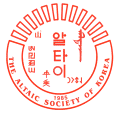글 수 98
2013.08.06 16:36:28
37428
KIM, Hyung-Soo. 2013. Origins of the so-called irregular intensive adjectives in Turkish. Altai hakpo 23. 149-178. The Altaic Society of Korea.
An etymological and comparative study of irregular intensive adjectives in Turkish, e.g. çırılçıplak∼çırçıplak ‘stark naked,’ sapasağlam∼sapsağlam ‘robustly healthy,’ and paramparça <*para-ma-parça ‘broken to pieces,’ reveals a number of interesting facts on the origins of these adjectives, shedding light not only on their underlying compound structure but also the morpho-phonological processes (syncope and compound reduction) they undergo to strongly resemble ‘regular’ intensive adjectives such as sapsarı ‘bright yellow’ and tertemiz ‘clean as a pin’. Three points emerge from this analysis: 1) these adjectives are part of a group of synonymic/alliterative compounds prevalent in Turkic, which could be either syndetic (e.g. dar-ma-dağınık) or asyndetic (çırıl-çıplak); 2) some of them are undergoing a stress shift in modern Turkish due to restructuring, e.g. from syndetic kár-ma-karışık to asyndetic karmá-karışık ‘completely confused’; 3) the conjunctive /mA/ that occurs in Turkish syndetic compounds, e.g.
Turk. dar-ma-dağınık, also occurs in Western Yugur but its allomorphs vary between /mA/ and /pA/, e.g. aq pa aq ‘snow-white’ and duz ma sağlam is added in Karachay-Balkar and Western Yugur, e.g. K-B. tüppetüz ‘absolutely correct’, WY dup pa duz ‘perfectly straight’, in order to recover the ‘expressivity’ of the emphatic function that was lost when syncope dropped the enclitic vowel, leaving only /p/ to mark emphasis.
Keywords: intensive adjectives, hendiadys, reduplication, compound reduction, grammaticalization, Turkish, Karaim, Karachay-Balkar, Western Yugur, Turkic languages.

